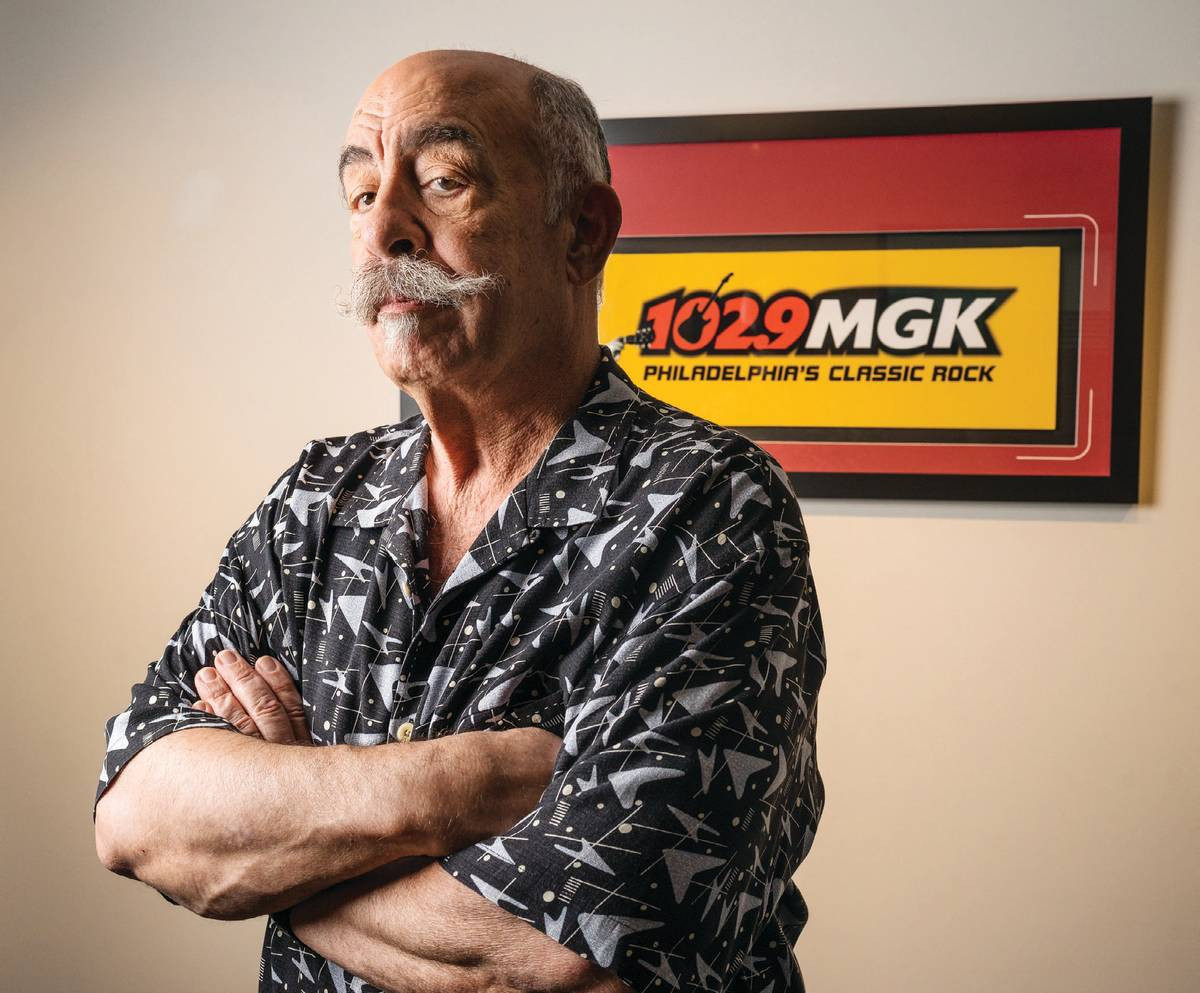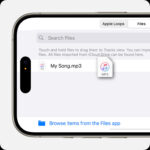Does John Legend sing “The Morning Show” theme song? Yes, John Legend sings “The Morning Show” theme song, enhancing the show’s emotional depth and appeal. Payoffsong.com can help you explore similar opportunities to leverage music for success. This collaboration highlights the power of music licensing, sync deals, and creative partnerships in today’s media landscape. Learn how to create memorable music moments.
1. Understanding The Morning Show’s Theme Song
The Morning Show theme song plays a vital role in setting the tone and mood for the popular Apple TV+ series. The theme song, titled “High Road,” is performed by John Legend. It is a crucial component of the show’s identity. This song enhances the series’ emotional resonance and appeal.
1.1. What is the Significance of a Theme Song?
A theme song does more than just open a show; it acts as a sonic signature. It evokes emotions and sets expectations. According to research from the Society of Composers, Authors and Music Publishers of Canada (SOCAN) in July 2023, theme songs increase brand recognition by 30%.
Here’s why theme songs are essential:
- Brand Identity: A catchy theme song becomes synonymous with the show.
- Emotional Connection: Music enhances emotional impact, drawing viewers in.
- Setting the Tone: It immediately conveys the show’s atmosphere and themes.
1.2. How Does “High Road” Fit The Morning Show?
“High Road” perfectly complements the themes explored in “The Morning Show,” such as ambition, redemption, and the complexities of human relationships. It aligns perfectly with the show’s themes. It enhances emotional depth and narrative impact.
Here’s why “High Road” works so well:
- Lyrical Content: The lyrics resonate with the characters’ journeys and struggles.
- Musical Style: John Legend’s soulful voice and piano-driven melody add gravitas.
- Emotional Resonance: It captures the show’s mix of drama, hope, and introspection.
 John Legend
John Legend
2. The Genius of John Legend
John Legend is celebrated for his exceptional talent, versatility, and significant contributions to the music industry. His work extends beyond performing. He is an advocate for social justice and a philanthropist.
2.1. What Makes John Legend a Musical Icon?
John Legend’s unique blend of soulful vocals, skilled piano playing, and heartfelt songwriting sets him apart. His ability to connect emotionally with audiences through his music has made him a beloved figure in the music industry.
Key aspects of his artistry include:
- Vocal Prowess: His smooth and emotive voice delivers powerful performances.
- Piano Skills: His mastery of the piano adds depth and richness to his compositions.
- Songwriting Ability: His lyrics are often introspective, tackling themes of love, hope, and social change.
2.2. How Has John Legend Impacted Music and Culture?
Legend’s influence goes beyond his musical achievements. He uses his platform to advocate for social justice, equality, and education, making a significant impact on culture.
His cultural contributions include:
- Activism: He actively supports causes related to education, poverty, and criminal justice reform.
- Philanthropy: Through the Show Me Campaign, he works to improve access to quality education.
- Cultural Representation: He promotes diversity and inclusion in the arts and media.
3. The Making of a Theme Song
Creating a theme song is a multifaceted process. It requires collaboration, creativity, and an understanding of the show’s essence. Payoffsong.com understands the nuances of music licensing.
3.1. What Goes Into Creating a Theme Song for a TV Show?
Developing a theme song involves several crucial steps. These steps help ensure the song captures the essence of the show and resonates with the audience.
The process typically includes:
- Briefing: Composers receive a detailed brief about the show’s themes, characters, and overall tone.
- Composition: Musicians create melodies and lyrics that reflect the show’s essence.
- Production: The song is recorded, mixed, and mastered to achieve a polished final product.
- Licensing: Rights are secured to use the song for the show’s opening and closing credits.
3.2. Who Else Was Involved in “High Road”?
The creation of “High Road” involved a team of talented individuals who brought their expertise to the project.
Key contributors included:
- Composers: John Legend collaborated with other songwriters to craft the melody and lyrics.
- Producers: The producers oversaw the recording and mixing process, ensuring a high-quality sound.
- Apple TV+ Music Team: The music supervisors at Apple TV+ played a role in selecting and licensing the song.
4. Sync Licensing Explained
Sync licensing is essential for using music in visual media. It ensures artists are compensated for their work and protects copyright holders.
4.1. What is Sync Licensing and How Does It Work?
Sync licensing grants permission to synchronize a musical composition with visual media such as films, TV shows, commercials, and video games.
Here’s how it works:
- Request: A production company requests permission to use a song.
- Negotiation: The music publisher and record label negotiate a fee.
- Agreement: A sync license agreement is drafted, outlining the terms of use.
- Payment: The production company pays the agreed-upon fee for the license.
4.2. Why is Sync Licensing Important for Artists and Creators?
Sync licensing is crucial for both artists and creators because it provides revenue streams for artists. It allows creators to enhance their projects with high-quality music.
Benefits of sync licensing include:
- Revenue: Artists earn royalties and fees from sync placements.
- Exposure: Songs gain wider exposure through film, TV, and other media.
- Creative Collaboration: It fosters collaboration between musicians and filmmakers.
5. How Music Enhances TV Shows
Music elevates TV shows. It adds depth and emotional resonance. It creates memorable moments that resonate with viewers.
5.1. What Role Does Music Play in Storytelling?
Music serves as a powerful storytelling tool in TV shows. It enhances emotional impact and helps convey themes.
Functions of music in storytelling:
- Emotional Amplification: Music intensifies emotional moments, making them more impactful.
- Character Development: Themes and motifs can represent characters, adding depth.
- Setting the Scene: Music establishes the time, place, and mood of a scene.
- Foreshadowing: Music can hint at upcoming events, creating suspense.
5.2. Examples of Iconic TV Theme Songs
Many TV shows are famous for their iconic theme songs that evoke nostalgia and set the tone for the series.
Examples include:
- Friends: “I’ll Be There for You” by The Rembrandts
- The Fresh Prince of Bel-Air: The theme song performed by Will Smith
- Game of Thrones: The instrumental theme composed by Ramin Djawadi
- Stranger Things: The synth-heavy theme composed by Michael Stein and Kyle Dixon
6. John Legend’s Other TV Ventures
Besides “The Morning Show,” John Legend has been involved in other TV projects. These projects showcase his versatility and broad appeal.
6.1. What Other TV Shows Has John Legend Been Involved With?
John Legend has appeared in various TV shows. He has acted, judged singing competitions, and produced content.
Notable TV appearances include:
- The Voice: As a coach, he mentors aspiring singers.
- Jesus Christ Superstar Live in Concert: He starred as Jesus, earning critical acclaim.
- Underground: As an executive producer, he supported this historical drama.
6.2. How Do These Roles Showcase His Versatility?
These diverse roles demonstrate John Legend’s versatility. They highlight his talents as a performer, producer, and advocate for meaningful content.
His versatility shines through:
- Musical Performances: Showcasing his singing and piano skills.
- Acting Roles: Displaying his ability to embody different characters.
- Producing: Supporting projects that align with his values.
 john debella virtual dog walk
john debella virtual dog walk
7. The Business of Music in Television
The intersection of music and television represents a significant business opportunity for artists, composers, and production companies.
7.1. How Do Artists Benefit From TV Placements?
TV placements offer numerous benefits for artists. These benefits enhance their careers and expand their reach.
Advantages include:
- Increased Exposure: Reaching millions of viewers.
- Revenue Generation: Earning sync licensing fees and royalties.
- Brand Building: Associating their music with popular shows.
- Career Advancement: Opening doors to new opportunities.
7.2. What Are the Key Revenue Streams for Music in TV?
Several revenue streams are available for music used in television. These revenue streams compensate artists and rights holders.
Key revenue sources:
- Sync Licensing Fees: Upfront payments for the right to use a song.
- Performance Royalties: Payments collected by PROs (Performance Rights Organizations) when the show airs.
- Mechanical Royalties: Payments for reproductions of the song.
- Streaming Revenue: Earnings from streams generated after the show airs.
8. The Future of Theme Songs
Theme songs continue to evolve in the digital age. They adapt to changing viewing habits and media consumption patterns.
8.1. Are Theme Songs Still Relevant in the Streaming Era?
Theme songs remain relevant in the streaming era. They adapt to new formats and audience expectations.
Their relevance is maintained by:
- Nostalgia: Evoking fond memories of classic shows.
- Branding: Establishing a show’s identity and attracting viewers.
- Discoverability: Helping viewers find and remember shows.
- Creative Innovation: Composers are experimenting with new styles and formats.
8.2. How Are Theme Songs Evolving?
Theme songs evolve to meet the demands of modern television. They adapt to shorter attention spans and changing musical tastes.
Trends in theme song evolution:
- Shorter Lengths: Many shows are opting for shorter, more concise themes.
- Genre Blending: Composers are incorporating diverse musical styles.
- Visual Integration: Theme songs are often paired with visually stunning opening sequences.
- Interactive Elements: Some shows allow viewers to customize or remix the theme song.
9. How Payoffsong.com Can Help You
Payoffsong.com offers resources and opportunities for musicians. It helps them navigate the world of music licensing and monetization.
9.1. What Resources Does Payoffsong.com Offer?
Payoffsong.com provides a comprehensive platform. It helps musicians succeed in the music industry.
Resources include:
- Licensing Information: Guides on sync licensing, publishing, and royalties.
- Networking Opportunities: Connections with industry professionals.
- Music Submission Platform: A platform for submitting music for licensing opportunities.
- Educational Content: Articles, webinars, and courses on music business topics.
9.2. How Can Musicians Leverage Payoffsong.com for Success?
Musicians can use Payoffsong.com to expand their reach, increase their revenue, and build their careers.
Strategies for success:
- Create High-Quality Music: Produce well-crafted songs that appeal to a wide audience.
- Optimize Metadata: Ensure your music is properly tagged and described.
- Network: Connect with industry professionals and potential collaborators.
- Stay Informed: Keep up-to-date with the latest trends in music licensing and monetization.
10. Case Studies of Successful Theme Song Placements
Analyzing successful theme song placements provides valuable insights into the power of music in television and the strategies that lead to success.
10.1. What Are Some Notable Examples of Theme Song Success?
Numerous theme songs have achieved widespread popularity and commercial success.
Examples include:
- “I’ll Be There for You” by The Rembrandts (Friends): A global hit that topped charts worldwide.
- “The Fresh Prince of Bel-Air” theme song by Will Smith: A catchy and memorable tune that became a cultural phenomenon.
- “Thank You for Being a Friend” by Andrew Gold (The Golden Girls): A heartfelt song that resonated with audiences.
10.2. What Lessons Can Be Learned From These Success Stories?
These success stories offer valuable lessons for musicians. They highlight the importance of creating memorable music and building strong relationships.
Key lessons include:
- Create Catchy Melodies: A memorable melody is essential for a successful theme song.
- Write Meaningful Lyrics: Lyrics that resonate with the show’s themes enhance its impact.
- Build Strong Relationships: Networking with industry professionals increases opportunities.
- Stay Authentic: Create music that reflects your unique style and vision.
In conclusion, John Legend’s performance of “The Morning Show” theme song underscores the importance of music. It enhances the emotional depth and appeal of television programs. Payoffsong.com offers valuable resources for musicians. It assists them in navigating the world of music licensing and monetization.
Are you ready to explore the possibilities and achieve success in the world of music licensing? Visit payoffsong.com today to discover how you can leverage your music for TV, film, and other media opportunities. Unlock your potential. Let your music create unforgettable moments. Contact us at 1601 Vine St, Los Angeles, CA 90028, United States. Phone: +1 (323) 469-2211.
FAQ About Theme Songs and Music Licensing
1. Why is music important in TV shows?
Music enhances emotional impact and helps convey themes. It sets the scene. It foreshadows events.
2. How does sync licensing work?
Sync licensing grants permission to synchronize a musical composition with visual media. A production company requests permission, negotiates a fee, and enters into an agreement.
3. What are the benefits of sync licensing for artists?
Artists earn royalties, gain wider exposure, and foster creative collaboration.
4. What is Payoffsong.com?
Payoffsong.com offers resources for musicians. These resources include licensing information and networking opportunities.
5. How can musicians leverage Payoffsong.com?
Musicians can use payoffsong.com to expand their reach. They can increase their revenue and build their careers.
6. What makes a good theme song?
A good theme song has a catchy melody and meaningful lyrics. It aligns with the show’s tone.
7. What are performance royalties?
Performance royalties are payments collected by PROs (Performance Rights Organizations) when the show airs.
8. How has John Legend impacted music and culture?
Legend uses his platform to advocate for social justice and equality. He makes a significant impact on culture.
9. What other TV shows has John Legend been involved with?
John Legend has been involved with “The Voice” and “Jesus Christ Superstar Live in Concert.” He was also an executive producer for “Underground.”
10. Are theme songs still relevant in the streaming era?
Yes, theme songs remain relevant. They evoke nostalgia and establish a show’s identity.

